News
The Seattle Times: King County cities’ approach to homelessness in Supreme Court’s hands
Posted on
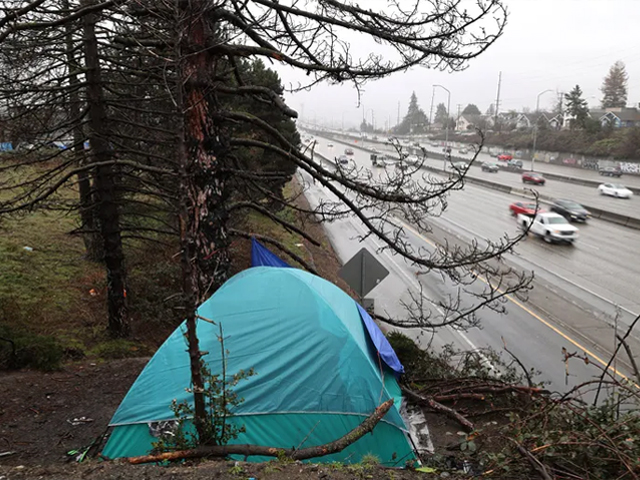
This story was originally published by The Seattle Times on Jan. 18, 2024
In a few months, the U.S. Supreme Court will hear oral arguments for a historic homelessness case that, if overturned, could void legal homelessness protections, leaving Seattle and other West Coast cities with freedom to clear encampments and move homeless people with few restrictions.
The court agreed to take up Johnson v. Grants Pass, Ore., a 9th Circuit Court of Appeals case decided in 2022, three years after declining to hear the 2018 decision, Martin v. Boise, which first established it is unconstitutional to fine or arrest homeless people for sleeping outside when they have nowhere else to go. Oral arguments begin in April.
Since then, bipartisan support for a ruling from the conservative-leaning highest court has grown, especially from politicians who tend to be more progressive on other issues.
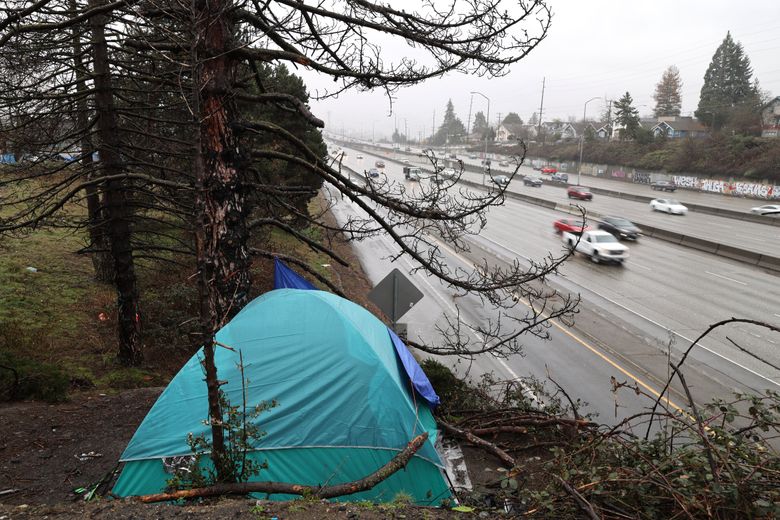
Seattle City Attorney Ann Davison wrote an amicus brief in favor of review, saying that the two decisions “have paralyzed local communities’ ability to address it [homelessness] in the places where it is most acute.”
The Johnson v. Grants Pass ruling says local governments can’t stack up civil citations and fees to prevent people from sleeping on public property or from using bedding to survive outside because it is a form of “cruel and unusual punishment” under the Constitution’s Eighth Amendment.
The small southwestern Oregon city tried to work around Martin v. Boise by prohibiting the use of “bedding, sleeping bag, or other material used for bedding purposes” instead of outlawing “sleeping” outside. The Appeals Court said that, too, is unconstitutional.
Some local homelessness advocates, like Alison Eisinger, executive director of the Seattle/King County Coalition on Homelessness, say they’re not surprised to see this happen because of a push from conservative organizations to chip away at the ruling. Those organizations have also pushed similarly worded anti-camping ordinances in cities across the U.S.
“I don’t think this is going to end well,” Eisinger said.
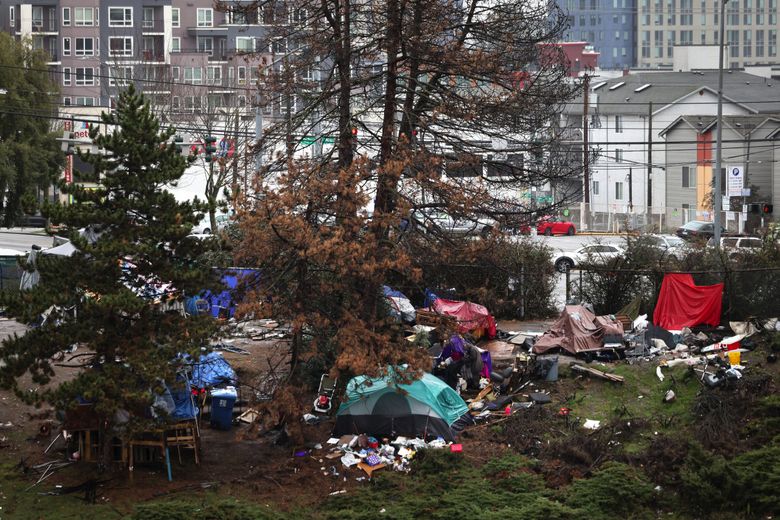
Martin v. Boise, which just turned 5 years old, was the most significant ruling on the rights of people forced to live outside because they can’t afford rent in the cities they live. It changed how West Coast city officials approached their budgets and homelessness services systems, as well as how they view the police and city’s role in breaking up encampments.
Most interpreted the decision, which broadly condemns punishing people for being poor, as a requirement to offer shelter before asking them to move.
Many cities have chosen to pursue what experts and advocates say is the bare minimum of what is considered an “adequate” offer of shelter.
Edmonds passed a camping ban in 2022, relying on shelters up to 35 miles away to satisfy Martin v. Boise. Mercer Island passed a ban in 2021 that even restricts people sleeping in vehicles from parking on the island. Burien and Seattle have been sued in recent years for their camping laws.
San Francisco is currently barred from conducting encampment removals without an immediate offer of shelter. The mayor and California Gov. Gavin Newsom pushed back on these protections in 2023, in the face of growing public outcry about the visible symptoms of homelessness.
If overturned, the Supreme Court could resolve the case on very narrow grounds or they could resolve it broadly, said Eric Tars, legal director for the National Homelessness Law Center.
Many proponents for its overturn hope the decision would undermine Martin v. Boise, but some experts warn the judges could even attack the preceding court cases that Martin v. Boise is built on.
For Seattle’s Davison, according to city attorney spokesperson Tim Robinson, this case comes down to local municipalities having the authority to make choices for themselves.
“This is not about policies regarding homelessness, this is about local communities having the authority to make decisions that best fit their community,” Robinson said in a statement Friday.
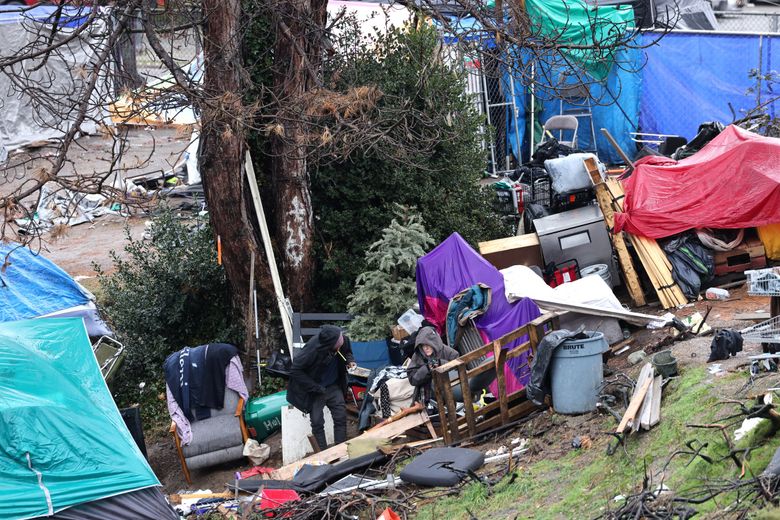
A spokesperson for Mayor Bruce Harrell said the Supreme Court’s decision will not change how Seattle goes about encampment clearings.
The business lobbying group Downtown Seattle Association, which has consistently pushed local governments to get people off the streets, didn’t take a stance on Johnson v. Grants Pass but said allowing people in need to remain on sidewalks and in parks is not a solution.
“Like communities across the country, we need more capacity for housing and treatment,” said Jon Scholes, president and CEO of the Downtown Seattle Association, in a written statement Wednesday. “We need to be getting people off the streets and on a path to stability.”
Some experts, like Tars, are hopeful that precedent will prevail. He said he sees several arguments that could appeal to varying viewpoints on the court, such as libertarians who might see lying down in public spaces as an American right.
“We’re definitely not conceding that it’s going to go in a bad way,” Tars said.
But at the same time, he acknowledged this court has shown recently that it’s open to reexamining more fundamental concepts that many assumed were settled constitutional precedent, such as Roe v. Wade.
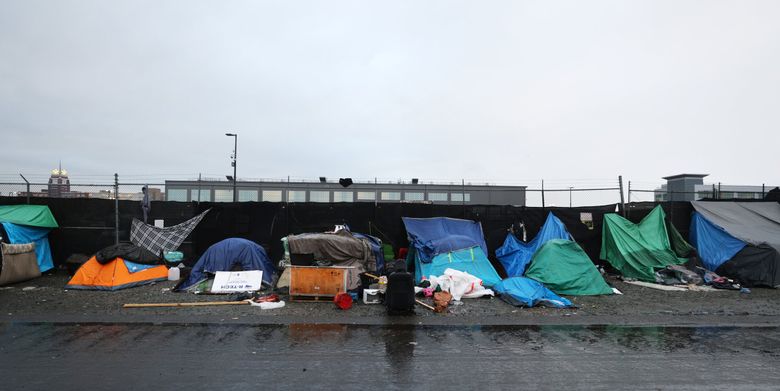
Sara Rankin, law professor at Seattle University, also said it’s hard for her to predict the outcome.
“Think about that for a minute: hundreds of thousands of people — men, women, and children — including elderly and disabled people suffer from being homeless in the United States at any given time,” Rankin said. “And in response, cities are fighting for the right to further punish already vulnerable people.”
Even though the city of Seattle has been required to follow Martin v. Boise for the last five years, it’s largely been allowed to clear encampments as it chooses, and it continually reports relatively low acceptance rates of people accepting shelter referrals. According to city data, about 16% of people living in encampments that the city removed last year entered a shelter immediately after.
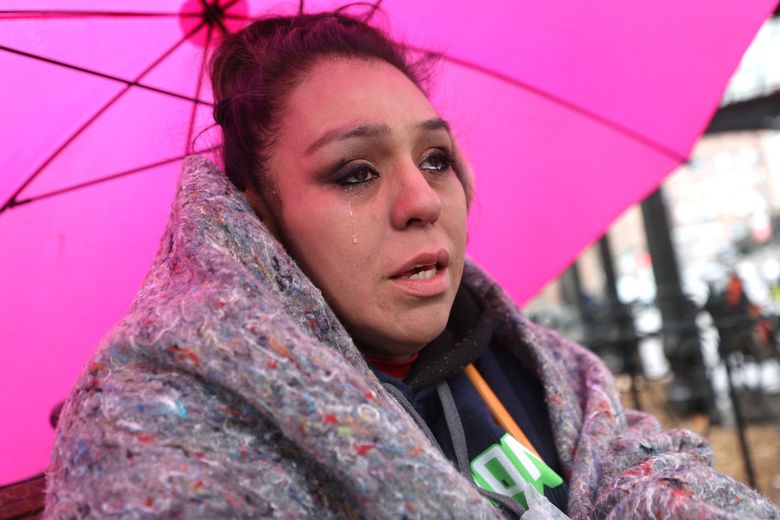
That means most people living outside get pushed around the city from one clearing to the next, said Daniel Malone, executive director of the Downtown Emergency Services Center, one of the region’s largest homeless service providers. He questioned how much a full overturn would really change for people most affected.
“The reason some people haven’t accepted offers of shelter is that often what is being offered isn’t what the person needs,” Malone said. “In those situations, offering nothing may not be practically different than what happens now.”